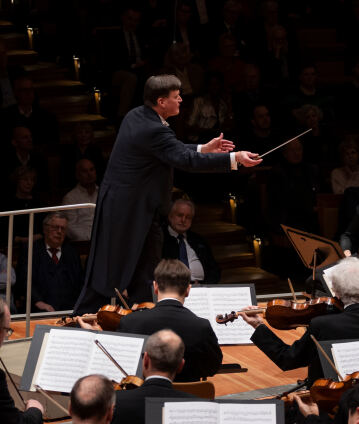Unfamiliar Bruckner with Christian Thielemann

Anton Bruckner on the path to self-discovery: this concert presents two almost unknown symphonies by the composer, neither of which are included in the official count. The Symphony in F minor is Bruckner’s first attempt in the genre. Although the composer described the work as “school work”, it delights with its verve and Romantic warmth. In the case of the so-called “Nullte” (“No. 0”), it is fascinating how Bruckner’s unmistakable personal style takes shape. Conductor Christian Thielemann is known for his Bruckner interpretations, making this journey of discovery particularly rewarding.
Anton Bruckner is one of the most outstanding composers in more recent music history. His symphonies, which even his contemporaries compared to majestic cathedrals, are monoliths with gigantic swells that nevertheless soar weightlessly to heavenly heights.
Bruckner’s experience as an organist determined the architecture and timbres of his works, in which he adhered to the personal style he developed with impressive consistency. The path to this goal is documented by two works not included in the official count, which Christian Thielemann presents in these concerts: the Symphony in F minor from 1863, with which Bruckner finally wanted to “hold his own” in the symphonic field after years of meticulous study, and the D minor Symphony from 1869, which was composed at a time when Bruckner was still completely under the spell of his dramatic F minor Mass – which is even alluded to on several occasions.
However, when court conductor Otto Dessoff after a private performance asked the provocative question “Yes, but where is the theme?”, Bruckner, plagued by self-doubt, declared the whole thing “void”. Fortunately, he nevertheless carefully kept the score. Because with its distinctly religious colouring, this captivating piece is also a typical Bruckner symphony, in which powerful climaxes meet moments of introspective transfiguration. It was precisely here that the composer found a workable model that he was able to develop further in his later symphonies.
© 2024 Berlin Phil Media GmbH
Related interviews
Artists
Our recommendations
- Christian Thielemann conducts a concert “à la française”
- Christian Thielemann and Gidon Kremer
- Christian Thielemann conducts Bruckner’s Eighth Symphony
- Christian Thielemann and Albrecht Mayer with works by Strauss and Bruckner
- Beethoven and Bruckner with Christian Thielemann and Rudolf Buchbinder
- Christian Thielemann conducts Tchaikovsky’s “Pathétique”